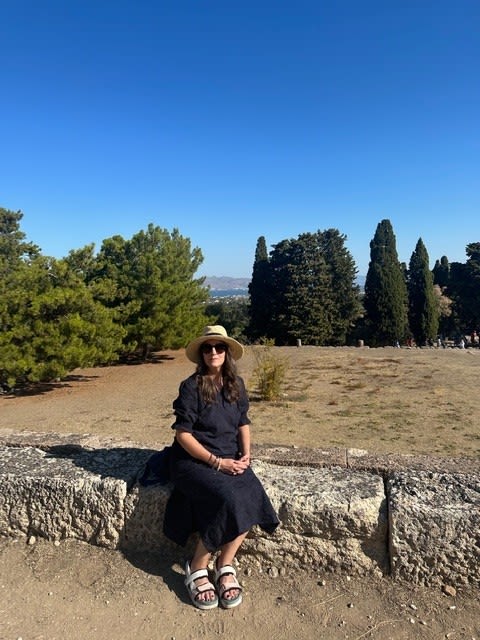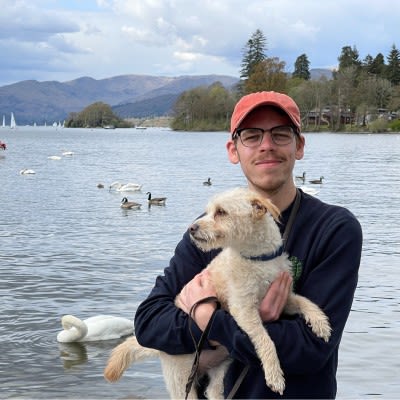Supporting the next generation of researchers
Our work with WRoCAH

The Taylor & Francis mission statement is that we “support, validate and connect the work of researchers and other knowledge makers, so that it can make the fullest possible contribution.”
As a business, we aim to “champion the curious, and give them access to the knowledge and learning they want, the freedom to act upon it, and the trust to use it responsibly.” As employees, many of us are also very involved outside of our regular day jobs with initiatives in our communities.
Our parent organization, Informa, fosters a culture of volunteering, supporting colleagues with paid days off, as well as offering opportunities to partner with organizations. One organization we support is called WRoCAH (White Rose College of the Arts and Humanities).
WRoCAH's website explains their purpose: “Doctoral researchers face an increasingly competitive post-doctoral environment. Being prepared to face the challenges of the 21st century requires a different kind of training. Doctoral researchers with the White Rose College of the Arts & Humanities (WRoCAH) develop their employability skills with a cohort, learning and networking with each other in a unique and tailored training program.”
We sat down with Liz Colquhoun, Global Head of Portfolio for Heritage and Library & Information Science Journals, who is a member of the Partnership Advisory Board (PAB) at WRoCAH, and Joseph Genchi, Postgraduate Researcher at the University of Leeds, who worked with Taylor & Francis as part of a WRoCAH Researcher Employability Project, to learn about their experiences.
Leah Kinthaert: What is the benefit of WRoCAH to the research community?
Liz Colquhoun: "WRoCAH offers a unique and internationalized doctoral training program across three of the UK’s top universities (Leeds, Sheffield, and York). WRoCAH's purpose is to equip researchers to become leaders in their chosen fields, while developing a range of transferable skills and the industry connections needed to enter a competitive job market."
"Alongside traditional research, the training is tailored towards scholarship that has real-world impact, and students are encouraged to foster collaborations with partner organizations both inside and outside of academia."
“WRoCAH works closely with leading external organizations including museums, galleries, archives, and libraries; arts and heritage organizations; creative industries; design, manufacturing and retail; publishing and performing arts; media; and charities and the public sector.”
Leah Kinthaert: What do those collaborations with industry look like for participants?
Liz Colquhoun: “The central feature of the WRoCAH training program is the Researcher Employability Project, the REP, which offers 1-3 month placements with partner organizations, or employers that researchers choose to work with. These placements are designed to widen the academic skillset and to give students a chance to look outside of their specific research area. A wide and diverse network of partners allows the REP scope to match closely between students’ aspirations and their host organizations."
"Undertaking a Doctoral Training Programme with WRoCAH is about more than academic research. In practice, these extensions of the traditional PhD track have led researchers onto a range of competitive and creatively varied post-graduate opportunities. When WRoCAH was launched, it made this aspect of the program mandatory, in acknowledgement of the importance of this opportunity. (WRoCAH is one of 10 Doctoral Training Partnerships, all of which are supported by the Arts and Humanities Research Council). In addition to the REPs, WRoCAH occasionally runs innovation or engagement fellowships that are AHRC-funded 6-month placements for WRoCAH post-docs.”
“We have hosted several REPs and three post-doc fellowships. All projects are fleshed out from the ideas of T&F colleagues, and have ranged from exploring 3D-modelling publication; rewards for peer reviewers in HSS; Open Research values; to predatory publishing in the social sciences and extending networks and training opportunities.”

Liz Colquhoun, Global Head of Portfolio for Heritage and Library & Information Science Journals, Taylor & Francis
Liz Colquhoun, Global Head of Portfolio for Heritage and Library & Information Science Journals, Taylor & Francis

Joseph Genchi, Postgraduate Researcher at University of Leeds
Joseph Genchi, Postgraduate Researcher at University of Leeds

Leah Kinthaert: Joseph, you worked on WRoCAH’s Researcher Employability Project. What specifically did you do with Taylor & Francis?
Joseph Genchi: "I worked on a three-month research project with Routledge, collaborating with them on their ‘Routes to Open Research’ publication programme. This provided an opportunity to further develop the analytical research skills that I have exhibited throughout my academic career. With the project’s focus on the concerns of Humanities societies, my background as an English Literature scholar meant that I was able to bring my experience and awareness of the particular priorities of academics in the discipline.”
“My work as co-director of the reading group “Quilting Points” provided me with the experience I required for the placement. The interdisciplinary nature of the group’s subject matter prepared me for the need to think outside of English Literature, expanding my view throughout the broad field of Humanities & Social Sciences and beyond. Utilising digital tools to organise and host a seminar series in response to the pressures of the pandemic also afforded me the flexibility and dynamic skills to successfully approach a remote work placement.”
The placement was a fantastic opportunity to step outside of academia.
Leah Kinthaert: What was the benefit from working with WRoCAH and Routledge/Taylor & Francis?
Joseph Genchi: "Although I brought this experience to the project, the work demanded that I adapt my skills and develop new ones. Over the course of the placement, I expanded and diversified my skillset by engaging in tasks including: analysing and synthesising a range of qualitative interview responses; learning about and engaging with revenue data; using digital research tools and platforms (such as Miro); conducting interviews and leading workshops to gain insights and feedback; and tailoring my research to new audiences in written and presentation forms. I was able to, for example, professionalise my presentation skills, shifting from presenting as an individual to fitting into the style and ethos of an organisation.”
“The placement was a fantastic opportunity to step outside of academia, experience day-to-day work in academic publishing, and see the inner workings of a major publishing house. With support from the Routledge team, the unique perspective I brought to the project as a Humanities PhD naturally shaped the direction of the research while still responding to the initial project brief. As a result, the final written report strikes a balance between material and economic concerns while never losing sight of the ethical implications that are especially important to those within the Humanities. The project was truly collaborative, and as such produced unique and significant results. I am very proud to have worked with Routledge, and it has been a crucial and enjoyable step in my development as a postgraduate researcher.”
Leah Kinthaert: Liz, why is working with WRoCAH your passion?
Liz Colquhoun: "Broadly speaking, collaborating with WRoCAH shows our commitment at Taylor & Francis to engaging with and our shared interests in the opportunities and challenges of the research and funding frameworks in the Arts & Humanities."
"I encourage everyone at Taylor & Francis with a potential project of 1-3 months, or even just a germ of an idea, to get in touch with me and share their ideas."
“On a day-to-day basis, we provide support to the WRoCAH team and its students through REPs, and occasionally trainings, such as getting published or best practice sessions."
“I’ve collaborated with colleagues in Journals Editorial, and occasionally the Comms team, to provide this training support at WRoCAH events. As previously mentioned, one of the aims of the placements is for students to work outside of their own research areas and ‘comfort zones,’ and we have been able to provide projects, for most students we have hosted that are not related to their core areas of study.”
“In addition, I provide support in assessing Collaborative Doctoral Award (CDA) applications. That is essentially a joint project between a White Rose institution and an industry partner that has been put forward for funding.”
It’s very gratifying to know that we’ve been a part of supporting these students’ career development!
Leah Kinthaert: What are some of the highlights from your experiences with WRoCAH?
Liz Colquhoun: “There have been many, from attending the annual student REP planning events in great venues such as the Royal Armouries Museum, to the annual PAB (Partnership Advisory Board) meetings with programme highlights and breakout activities. Our hosted REPs are always highlights, and we use the opportunity beyond the students’ projects to give them a taster of working for an academic publishing company."
"Joseph Genchi, who we’re speaking with here today, won the inaugural York Open Research Award, funded by the University and the Wellcome Trust with a submission based outcome of his REP with us on 'Open Research Values and Practice: Scholarly Societies in the Humanities’, co-authored by our own Kath Burton and Janet Remmington.”
"Another student returned to T&F after completing their PhD to take up a role in the Ethics and Integrity team. Our very first student, an archaeologist, went to work for GCHQ, the UK Government Communications Headquarters, a world-leading intelligence, cyber, and security agency. It’s very gratifying to know that we’ve been a part of developing these students’ careers!”
Interested in learning more about WRoCAH? Check out its website.
You might also like:
Social justice and sustainability
Find out about the content we publish, commitments we've made, and initiatives we support related to social justice and sustainability:
 China
China Africa
Africa
